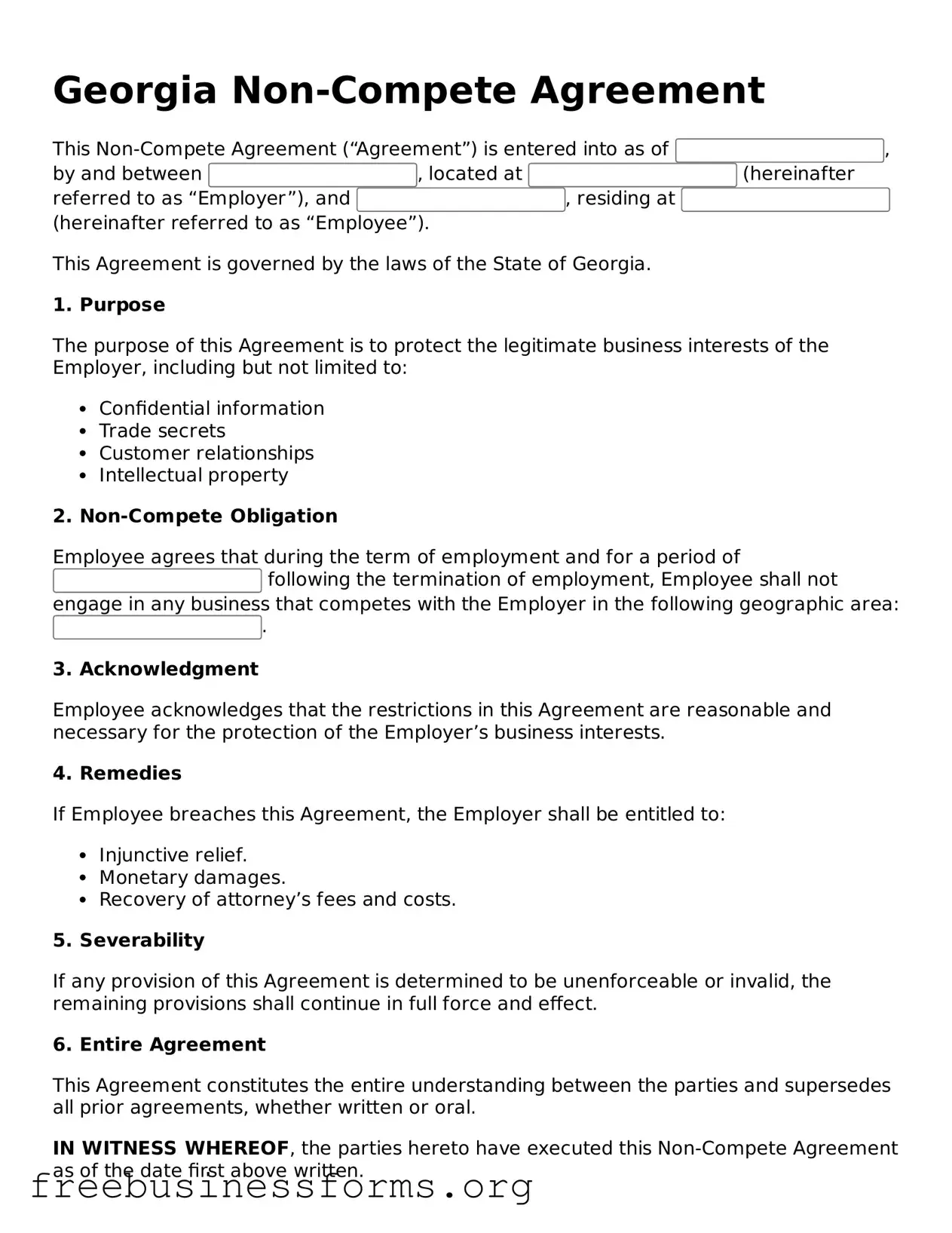Blank Non-compete Agreement Template for Georgia
A Georgia Non-compete Agreement form is a legal document that restricts an employee from engaging in certain competitive activities after leaving a job. This agreement aims to protect a business's interests by preventing former employees from sharing sensitive information or competing directly with their former employer. Understanding the nuances of this form is essential for both employers and employees to navigate their rights and obligations effectively.
Open Form Here

Blank Non-compete Agreement Template for Georgia
Open Form Here

Open Form Here
or
↓ PDF File
Quickly complete this form online
Complete your Non-compete Agreement online quickly — edit, save, download.